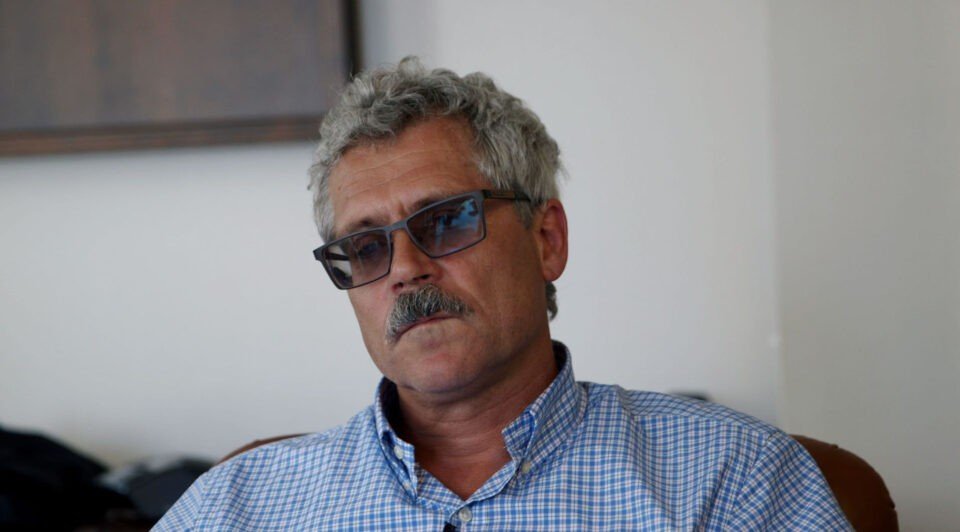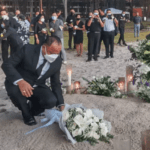FIVE years after they were banned from the Rio games over state-sponsored doping, Russian athletes made a triumphant return to the Olympics, picking up over 60 medals in Tokyo.
But, after losing to Russian Evgeny Rylov in the 200m backstroke, US swimmer Ryan Murphy questioned whether it the race had been “clean” because of “things that had happened in the past.”
The athlete’s distrust is a result of a huge scandal that erupted in 2015, when it emerged performance-enhancing drugs were widely used by Russia’s Olympic athletes, sanctioned by President Putin’s ministers, and that drug samples had been swapped to make them look ‘clean’.
As head of Russia’s Anti-Doping Centre, Dr Grigory Rodchenkov, 62, was in the centre of the storm – inventing an undetectable steroid ‘cocktail’ and presiding over the sample-swapping that hoodwinked the World Anti-Doping Agency (WADA) for ten years.
Here, in exclusive extracts from his new book The Rodchenkov Affair, he reveals how he pulled it off – and how he fears for his life after fleeing to the States.

Cleaning ‘dirty’ urine to fool doping agency
“I am in involuntary exile from my homeland Russia.
I live in protective custody in the proverbial ‘undisclosed location’ and whenever I leave my small apartment I am accompanied by one, or sometimes two, armed guards.
I am a devoted husband and father, but I haven’t seen my wife of 34 years or our adult children in five years.
I fled Russia, in 2015, fearing for my life, after helping to run the most successful sport doping enterprise in world history.
As Director of the ironically named Moscow Anti-Doping Centre (ADC), my job was to make sure that the hundreds of Russian athletes participating in international events were never caught with banned substances, such and anabolic steroids or synthetic testosterone, in their body fluids.
‘Dirty urine’ samples soaked with performance enhancing drugs emerged ‘clean’ from my laboratory.
For over ten years, and five Olympics, not one athlete under my guidance tested positive for doping substances during the competition.
But I certainly didn’t work alone – I administered Russia’s doping operation under the watchful eye of the FSB (formerly KGB), the Ministry of Sport and the sport-obsessed judo fan, President Vladimir Putin.
‘Duchess cocktail’ of undetectable drugs
My secret weapon, concocted as we prepared for the 2012 London Olympics, was the now famous ‘duchess cocktail’.
Steroid detection had become so sophisticated but we realised that if you consumed steroids dissolved in alcohol, by swirling the mixture around in your mouth, the most risky, or detectable, metabolites would not emerge.
I dreamed up the cocktail – a combination of methenolone, trenbolone and oxandrolone, dissolved in Chivas Regal whisky – then mixed it up in my kitchen.
Irina Rodionova, a doctor at the Ministry of Sport, christened it the ‘Duchess’ after her favourite pear-flavoured lemonade.
The cocktail – along with the substitution of certain urine samples – allowed us to get through the London games but, in October 2012, the scientific director of the World Anti- Doping Agency (WADA), Dr Olivier Rabin, showed up at the ADC.
He listed 67 urine samples of Russian athletes collected before the London Olympics, and asked for the leftover ones, which WADA had instructed us to retain, to be shipped to their lab at Lausanne for reanalysis.
I knew there were between 10 and 12 positives among them and we had less than 24 hours to make the urine look doping-free.
I knew there were between 10 and 12 positives among them and we had less than 24 hours to make the urine look doping-free.Dr Rodchenkov
We had plastic bottles full of ‘clean’ urine, collected over the summer, that we could pour into the A bottles – the first sample tested.
Our biggest challenge was to make the tampered A bottled urine look like the B samples – which are kept in ‘tamper-proof’ bottles because they had been collected at different times, in some cases months apart.
Just a glance could tell you that the samples were different – the colours didn’t match, and the tiny suspended flakes that formed after storage were different shapes and sizes.
I spent all night tweaking PH readings, which helped change the appearance of the flakes. Then I tried to make the samples paler or darker, either by diluting them with water or adding Nescafé instant coffee granules.
The Lausanne lab completed its reanalysis of the 55 samples and, as predicted, only one tested positive.
‘Mousehole’ in wall to secret room
The world of sport changed forever when FSB officer Evgeny Blokhin, who was sent to oversee our operation at the ADC, told me that his team of ‘magicians’ had managed to successfully open the ‘tamper-proof’ BEREG-kit B sample bottles.
After putting it to the test with samples from my lab, I was shocked as I carefully inspected the surface of the glass bottle and its plastic cap inside – they were separated, but they appeared to be intact.
The Sochi Olympics, in 2014, was the first on Russian soil since the collapse of the Soviet Union in 1991 and it’s impossible to overstate how important they were to the Russians and to Vladimir Putin.
We had built a special lab close to the Olympic village which all the doping control samples would pass through and we needed to exploit this situation.
By early 2013, we knew that we had a nearly undetectable steroid delivery system in the ‘cocktail’ and we could swap tainted urine from an athlete’s A and B bottles with clean urine from a freezer.
My long- time assistant, the former marathon runner Yuri Chizhov, drilled the now famous ‘mousehole’ in the wall, about eight inches off the ground.
The hole meant we could move samples from the strictly controlled Room 125 inside the security perimeter, where samples were apportioned, to our ‘operational’ Room 124, which was not surveilled by security cameras.
Blokhin could then remove them to the FSB’s Command Centre in the next door building, where we kept four freezers of clean urine.
Masquerading as a plumber, Blokhkin would spend the nights in the laboratory, assuring the smooth transfer of bottles to the Command Centre and back.
The ‘clean urine’ arrived in Sochi in soda bottles, jam jars and baby food containers, though the labelling was clear and written in permanent ink to prevent mix- ups.
Every night, I sealed the B bottles, which were passed through our ‘mousehole’ to the security zone where our storage freezers were located.
Our efforts helped bring home 33 medals – although the scandal was about to see the athletes stripped of their prizes.

The storm breaks
Seven months prior to the Sochi Games, reports had emerged of systematic cheating by Russian athletes, although details were murky.
After the Games, WADA and the International Olympic Committee (IOC) initiated a full- blown investigation.
The 2015 Independent Commission’s Report named me 97 times, saying I was at ‘the heart of the positive drug test cover- up’ and ‘an aider and abettor of the doping activities’.
The massive scandal resulted in Russia’s limited participation in the 2016 Rio de Janeiro Olympics, and their painful suspension from the Paralympic Games in 2016 and the Winter Games in Pyeongchang in 2018.
An irate President Putin demanded ‘personalised and absolute’ accountability.
I was forced to resign from the Anti- Doping Centre, friends warned me that my life might be in danger.
When the LA based filmmaker Bryan Fogel, with whom I had been collaborating on the movie documentary Icarus, offered me a ticket to the United States, I grabbed my laptop and hard drive from my office, packed a bag and fled.
Two of my former colleagues, Vyacheslav Sinev, former director of the Russian Anti-Doping Agency, and his successor Dr Nikita Kamaev died within 11 days of each other – so my fears seemed justified.
During my five years in exile, there have been credible threats on my life. Putin has declared that I’m an American intelligence agent and that I belong in jail.

sunit





